- Home
- Mary Anne Kelly
Keeper of the Mill Page 13
Keeper of the Mill Read online
Page 13
“It looks worse on film,” Mara admitted, apprehending Claire’s probable waste of film. The makeup doesn’t cover it on film. The camera picks it right up. What is it they say? The camera never lies.”
“Oh, it will go away,” Isolde said, “eventually. I had it too.”
“But you have kids to show for it,” Mara said bitterly.
“It wasn’t those kids.” Isolde said. “I had another one, too.”
“Oh,” she said, very still.
The three of them looked out at the water. The light was fading now. You could see the little bits of filth and advertising, lapping at the shore.
It was dark and chilly when they got back home, but Claire had it in her mind to go up into the tower and inspect the bell. She went to her room, scuttled out of her clothes and into a pair of jeans and her favorite (and only) cashmere sweater from Bendel’s After-New-Year’s Giant Half-Off Sale. She searched the dresser top for the camera battery she’d left up there. The girl must have mistaken it for Dreck and swept it into the trash when she came to reline her trash basket and put the chocolate on her pillow. (Bavarian hospitality required wrapped chocolates on the pillowcase. No matter what else would happen in bed, the dreams must be sweet.) It didn’t matter, really; her other battery would still do. At least the girl had left the window open, the way Claire liked it. There was nothing worse for her than some American hotel rooms where they sealed you into a synthetic, suffocating, albeit burglar-proof, gardenia pit.
No one was around, but she decided to take the back stairs anyway. These met the front stairs on the landing just below the bell tower. Up she went, tippy-toeing to a strange sound. What was this, she wondered, rats? People? It was muffled and dry. She opened the creaky door to the attic. The noise stopped. The long, brown, old-fashioned attic, clean as only a German attic could be, silently allowed itself to be inspected in the moonlight. Hell, she thought, as good a place as any to start looking for a cache of World War II diamonds. There were neatly rowed pieces of furniture and rolled-up rugs. Then she saw it. There, on a faded lime-and-maroon-striped silk ottoman, a huge live bird was watching. He regarded her with something between disdain and mild interest. “What’s up?” she greeted him with more cool than she felt. He narrowed bird eyes at her.
“Stuck?” she asked him nicely. “Here.” She walked cautiously to the window closest to her and heaved it more open. Out the great bird flew. He was white with green and purple markings that fanned out when he flew. Beautiful. She’d seen this fellow before, pecking garden seeds. He must have wandered in, then been unable to take off. She stood at the window and watched him cross the green landscape, watching him arcing smoothly over the pink cherry blossoms and then landing safely on the Roman Bridge, with its lamps. She must go down there. She must look at the Mill from there.
Along the wall were the shelves of neatly packed photograph albums Evangelika had warned her not to touch. She walked over to have a closer look. There were yards of them. She picked up the latest. Recent photographs of Stella and Cosimo, horsing around along the Isar, Cosimo dumping a balloon of water on Stella’s laughing head. Pity she didn’t want to be a model. She really was photogenic. Well, not a pity. But she was going to be hard not to photograph. Claire trailed her fingers along the shelf of albums, way, way back to the start, the early, prewar stuff. She pulled a few down and sat, cross-legged, on the rolled-up rug. It took her a couple of albums. She peered closer. It had to be. The same ivory skin and black hair twirled into a fashionable chignon. The same look, only on a young and vibrant woman, flushed by exuberance and … what? Love?
Iris was standing, in a hat with a little veil on it, behind a sled. The photograph was supposed to be of the old woman on the sled, but the photographer hadn’t been able to stop himself from focusing on the young woman looking at him so unabashedly smitten. So lovely.
There were all sorts of reasons people became what they were in life. Seeing a series of photographs like this, so transportingly beautiful and full of light, Claire was overwhelmed with reassurance and hope. She looked through the albums before and after this one but couldn’t find another shot of Iris. Still, it was a marvelous picture and she must show it to Iris. She lifted it from its paper-frame edges and stuck it into her pocket. She also took the one beside it. It was the same striking, snowy view of Saint Hildegard’s Mill, but there were no people, only a bird sitting on a fence. The walls around her creaked and groaned. She felt as though she was being observed.
She turned and scoped the trim attic again. No one would have hidden anything here. It was so … so occupied. She didn’t know why she was so sure, but she was. Did she imagine she had some telepathic connection now with the von Lillienfeld stones? Or was she just tired? She leaned out the window and observed the dark world, shimmering with its newfound frenzied lushness. Yes, she concluded, she did. Somewhere in this mysterious place they waited patiently, cunningly, to be found. And she was the one, by cracky, who would find them.
She left the attic and started up the narrow stairs to the bell tower. Almost there, she thought she heard a noise, a beating or flapping. It was an uncanny sound. She didn’t like it. She wished she had a flashlight, for here it was really dark. It was stupid to go up alone to the accident scene on a dark night. So she was a coward. So what? If Hans could lose his footing on that treacherous ledge, then certainly so could she. She turned and started back to her room when she heard Cosimo playing Schuman’s “Scenes from Childhood.” How deftly he played! The alluring sound pulled her to the closed door. She stood there, rapt, enjoying now the sounds of old creaking beams when they were mixed with music, when someone came up behind her. She jolted.
“Ich bin’s. It’s me, Fräulein Bibi Wintner.” The woman gave her a sour look for being so jumpy. Or for standing outside the family room like a thief. “Bibi,” as she now called herself, opened the door after a harsh reprimanding knock, and there, Claire saw, were Stella and Father Metz at the venerable chessboard and Cosimo at the piano. The room was lacquered china red.
She felt idiotic, but Stella smiled and stood and motioned her to come in. It was an exquisite room; there were antique rugs on the tables and jugs of flowers on top of them. “Bring doch noch eine Tasse.” She bade Bibi to go get another cup. A look passed between them. Fräulein Wintner scowled at Stella as she left. Once more up and down the stairs, Claire could just hear her thinking, and for this cow.
“Really, no,” Claire protested, but Stella insisted, and Claire couldn’t help thinking what a rude awakening this girl would have had, had she chosen the world. The cloister wasn’t going to coddle her either, she was sure, not the way she was used to being coddled. But at least she would be safe. Cosimo went right on playing. He didn’t mind strangers so much as he minded noise. Sitting comfortably in a striped Louis XIV wing chair, eating a mixture of dried fruit, nuts, and fresh kiwis imported from Israel, was Temple Fortune.
They held each other’s eyes for an unrealistic amount of time. Even as she looked, Claire thought this is ridiculous. And still she looked. The room grew wider and longer, and the lamps on all the tables throbbed peripherally.
“Hi,” she finally managed. “I thought you were in London.”
“I never left Munich.” Temple narrowed his gentle eyes at her. He was so handsome and boyish. His chin went down and his forehead wrinkled into middle-aged familiarity. He was adorable. She could easily climb into his lap and cover him with kisses. She could almost see the strong gust of her desire steam across the room in a white hurling vent that curled up around him like something gossamer, like lunacy, indelible.
“Mr. Temple was detained at the airport,” Stella revealed excitedly. She drank, Claire was astonished to see, her mineral water straight from the Überkinger bottle.
Old Father Metz put a soothing hand on her rigid shoulder, stopping her. She was all coiled up, pacing, ready to spring. Father shook his head sadly. “As if there wasn’t already enough pain for these children,” he said
in his heavy accent. “Now the police say that perhaps Hans did not die by falling down but was dead before the fall.”
“What?”
“Maybe dead. There’s a big difference,” Temple said, getting up and padding across the room, each foot touching the floor with wincing squeamishness.
“They are asking no one to leave for the moment,” Father Metz qualified, “until they straighten this mess out. Make finished the autopsy. So they stopped Mr. Fortune at the Passkontrolle,” Father Metz explained.
“And here I am.” Temple Fortune put both hands up.
“Surely they don’t suspect you.” Claire dropped into a fat feather cushion on the rococo bergère.
“I’m afraid we’re all suspects,” Father Metz said, “even me.” He barked a laugh that said, “as ludicrous as that sounds.”
“Even you.” Puffin Hedges, drink in hand, entered the room from the patio and smiled at Claire.
Claire smiled back. A tidy German prison cell for the rest of her life. Very funny. “Well,” she said. “I’m sure the German police know what they’re doing.”
“Only an American would say something like that,” Puffin said to Temple Fortune. They shared their chummy look. They must be very close, she thought, picking up a simple piece of raku pottery to admire, appraising it from every angle. It was miraculously plain.
“I hate ceramics.” Puffin, watching her, made a face. “My mother had all sorts of those atrocities around the house while I was growing up. Dust catchers. Horrible.”
“Ah!” Claire exclaimed. “There’s the dog!”
“Yes.” Father Metz ruffled the dog’s ears and passed him a morsel of Apfelkuchen on a party napkin.
“I’m glad to see that.” Claire smiled at the old priest. “So you’ve taken him on, have you?”
“Whoosh! Not me!” the old priest laughed and slapped his hefty thigh, his dandruff shaking down like talcum powder. His old black suit was shiny and worn. You could tell he did his own ironing. His trouser pleats had a many-faceted edge. Claire’s heart broke for him. It occurred to her that he was here to see how she liked the car. Did he think she would buy it tonight? Oh my God. He was fidgety and excited, was Father. He held his little plate and transported each crumb carefully onto his waiting tongue, then snapped his keen mouth shut with a surprised, delighted smile to tease the dog. “Na, na, the Hundi is young, aren’t you, boy? Many years to go yet, eh? Was? He’ll be needing someone young to take good care of him, won’t he? Doesn’t need an old master popping off and leaving him in stich again, eh? Leaving him alone again. Young Friedel will take good care of you, won’t he? Eh?”
“Is that the gardener?” Claire asked, pale with guilt about the car.
“That’s right,” Puffin said meaningfully. “You noticed him, did you, mmm?”
“I notice just about everything, Mr. Hedges,” Claire said right back. “That’s my job, as I see it.” The nerve of him! Insinuating she looked at all the boys! For that’s what the inference was. And for Temple Fortune’s benefit, she was sure. So Puffin liked her well enough, but only for his own amusement. Not, she suspected, because he wanted her to himself, but rather because he wanted Temple Fortune to himself. Never mind. Little boys and their friends. Go figure. She felt her back go up.
“As I see it! Get it?” Puffin was bent at the waist and leaning over Father Metz. “Because she’s a photographer! Get it?”
“Puff, you’re drunk.” Temple Fortune, like a permissive parent, shook his head apologetically, but full of love. He turned to Claire. “If he wasn’t in charge of our meeting expenses, I’d send him straightaway home.” Claire understood. Her own sister Carmela was a never-ending series of embarrassments wherever you took her. She smiled benevolently at Temple.
Bibi Wintner stood at attention beside Claire. “There’s a call for you, Fräulein.”
“Oh dear,” Claire said.
“Use this one, please.” Stella Gabriella accommodatively offered her phone.
Bibi Wintner didn’t like her using the family phone, Claire noted. She probably was thinking this (paying guests in the family room!) would never be the case if Hans were still alive. Claire probably would have dashed all the way down to the lobby, but it gave her such pleasure to offend this Bibi Wintner who insisted on calling her “Fräulein” when she knew very well she was “Frau.” She smiled at them all and picked up the phone. “Hello,” she said, expecting Blacky or Isolde. It was Johnny. “Everything all right?” she gasped, imagining Anthony with appendicitis in Disney World.
“Everything’s great. You good?”
“Yes. Yes. The kids?”
“I talked to everyone. They’re fine. Anthony’s spending all his grandma’s money, and Dharma is spending all Carmela’s.”
“That’s good.” She relaxed. “That’s good.”
“Hey! You got that job!”
“What job?”
“That Jupiter Dodd thing. The cigarette campaign. He called right after you left. You got it. How about that?”
Claire’s heart sank. “Oh. That. I’m afraid I haven’t decided whether or not I can take it, Johnny.”
“What do you mean? You got it. He told me you did.”
“Yes. Well, the thing is, I didn’t take that job yet.”
“You what?!”
The entire room, no longer talking, heard Johnny’s incredulous response.
“You see, I’m not exactly sure I can handle that just now.” Still calm, she grimaced at them and twirled the telephone cord around her finger.
“What is this, Claire? One of your goddamn moral issues? Is that what this is? Because I got a pile of bills here with your name written all over them.”
“Yes, I know, Johnny—”
“I got Macy’s, I got A and S, I got American Express, I got-”
“We can talk about this anoth——”
“Or did you forget Christmas, maybe?” he shouted. “All those damn toys the kids had to have, couldn’t live without? Because I haven’t forgotten them, because you know why, Claire? Because I’m standing on top of the whole mess of them right here in the dining room where they left them because nobody the hell wants them anymore, half of them are broken, all right? I got the toys on the floor, I got the bills on the table. I got you over there in la-la land, and after we hang up I got three more bill collectors gonna call and give me their showdown low-down. You got that? So now you tell me how you’re too good to contribute to the nicotine addiction of the already washed-up, war-torn European continent, because I know that’s what you’re gonna say because that’s what you always say. You want it both ways, baby. You want the goodies from the high life and the health benefits from a clock-puncher like me. Well, you can’t have it both ways. And I’m telling you, if you don’t take that cushy effing job, you are the one who’s being immoral here. You got that? You. Oh. And by the way, I sold the car.”
By the change in tone, by the mere civility of this last sentence, Claire’s alert antenna went up.
“What car?”
“Your car.”
“My car?”
“Yeah, your car, which I gave you, which I pay the insurance for, which you don’t need, at least that’s what you kept telling me; if we moved up to Richmond Hill North, you wouldn’t need a car because you could go everywhere on your bicycle. Am I right? Did you tell me that over and over again to get me to move up here or not?”
Claire looked at old Father Metz, uncomfortable in his too-tight visiting pants, and smiled. He had asthma and he could no longer smoke. Only he and Stella did not. The room was full of smoke. They sat in a foggy mushroom of their own making, batting their baby wands of concentrated fire for emphasis. This one coughed. That one coughed. They looked great, though. Svelte.
“I’m still not sure about that job, Johnny. I might not,” she said, sure now that she would take it. She could put some kids up on the Roman Bridge, give them some cigarettes, sign them up with releases, and sit back while she pulled in
the money. She would buy old Father Metz’s car, she mused. She’d have it shipped. Wouldn’t that be something?
“I’ll kill you, Claire,” Johnny said.
Claire trilled a merry laugh. “Do try not to worry about me so much. I’ll call you back tomorrow. I’m on someone else’s phone.” She heard her doorbell ring in Queens. “Who’s that?” she asked, curious.
“No one,” Johnny said.
“I mean at the door.”
“Nobody’s here, I told you,” he lied.
He couldn’t fool her. She knew her opulent doorbell sound. It was so unlike the tinny bzzz of her youth, she would recognize it anywhere. It was probably, she decided hotly, the liquor-store delivery boy. If she wasn’t mad before, she was now.
“Good-bye,” she said.
“Good-bye,” he said.
And they both hung up.
“Darjeeling or Pfefferminz?” Stella held both teapots in the air.
“Oh, Pfefferminz,” Claire answered absently. She walked across the room to the piano. “That’s beautiful,” she said to Cosimo. “What’s this, now? Was ist dieses schöne Stück?”
Stella stood almost immediately beside her, sort of on guard. Her breath was on Claire’s cheek. Did prayer and goodness make people smell so sweet? More likely the tea. Stella seemed frightened. What did she think? She was going to hurt Cosimo? Bite him, maybe? Claire was cranky, returned by the phone call to that quarantine family women live in, that isolated spot from where there is no decent way out of, for husbands know that whatever they do or say, their wives will put up with it for the sake of the children, yes, even in this day and age. There was no escape from the life one had chosen for one’s self. And there were no tears of frustration and despair to comfort the happily married.
Cosimo turned his grave face to Claire. “It’s Schumann’s ‘Träumerei,’ he said in perfect English.
“It’s lovely,” she said warmly. What a nice fellow. He wasn’t crazy at all. “You’re an artist,” she said, cheered by his existence. There was salvation in the world of art. Anything could happen. Cosimo ducked his head and went on playing. He was as dark as Stella was fair, younger, with great wet South American brown eyes and blue-black hair. Like the grandfather, Claire thought. Like Iris’s Adam. Dark and swarthy. Only the long limbs were kin to Stella’s. He rewarded her by saying, “Do you like Gershwin?”

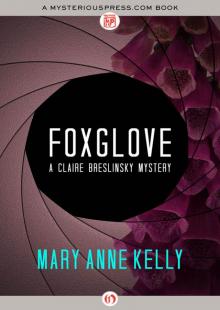 Foxglove
Foxglove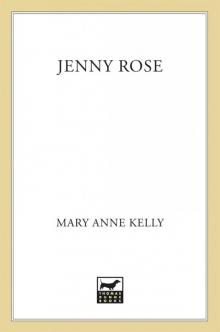 Jenny Rose
Jenny Rose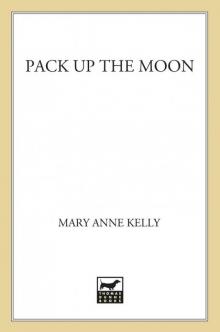 Pack Up the Moon
Pack Up the Moon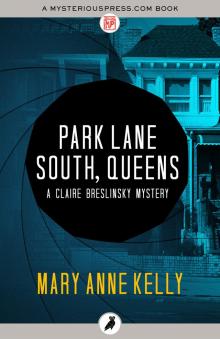 Park Lane South, Queens
Park Lane South, Queens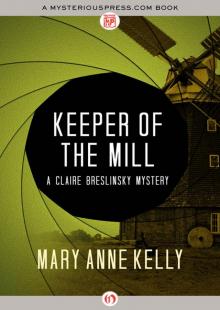 Keeper of the Mill
Keeper of the Mill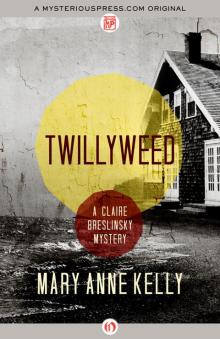 Twillyweed
Twillyweed